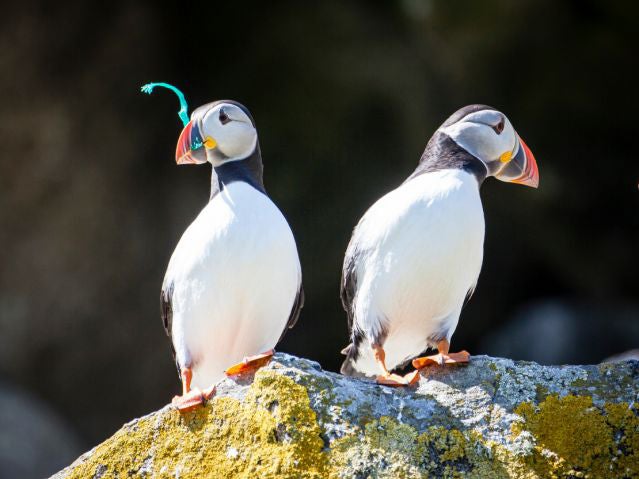Chancellor to ask public for ideas to curb plastic pollution, amid criticism he is dragging his heels
A 'call for evidence' on possible tax incentives, in the Spring Statement, is not expected to include any specific proposals

Your support helps us to tell the story
From reproductive rights to climate change to Big Tech, The Independent is on the ground when the story is developing. Whether it's investigating the financials of Elon Musk's pro-Trump PAC or producing our latest documentary, 'The A Word', which shines a light on the American women fighting for reproductive rights, we know how important it is to parse out the facts from the messaging.
At such a critical moment in US history, we need reporters on the ground. Your donation allows us to keep sending journalists to speak to both sides of the story.
The Independent is trusted by Americans across the entire political spectrum. And unlike many other quality news outlets, we choose not to lock Americans out of our reporting and analysis with paywalls. We believe quality journalism should be available to everyone, paid for by those who can afford it.
Your support makes all the difference.The public will be urged by the Government to suggest tax changes to curb plastic pollution, amid growing criticism that ministers are dragging their heels.
A “call for evidence” on how tax incentives could cut the amount of single-use plastics – such as cutlery, foam trays and coffee cups – that end up littering the land and poisoning the seas will be launched.
But the move, in Tuesday’s Spring Statement, is not expected to include any specific proposals, nor will a formal consultation be launched by the Treasury.
Philip Hammond, the Chancellor, will tell MPs he is determined that Britain will “lead the world in creating innovative solutions to tackling this global problem”.
But the call for evidence was first proposed by Mr Hammond four months ago, the delay prompting criticism that ministers have simply “talked the talk on plastic pollution”.
A proposal for a 25p “latte levy” on disposable coffee cups, made by a cross-party Commons committee in January was met with a cool response from the Government.
In January, Theresa May delivered the first major speech on the environment from a sitting prime minister since 2004 and published a 25-year Environment Plan with the ambition of abolishing plastic waste by 2042.
However, it was widely criticised for being vague, for the lack of proposed legislation and for the lengthy timescales for dealing with the problems involved.
Tanya Steele, of the World Wide Fund for Nature, said much faster action was needed, including “a ban on avoidable single-use items such as plastic cups, cutlery and straws by 2025”.
“Businesses need to embrace the need to go single-use plastic free and the Treasury introducing a tax would send a signal to companies, retailers and consumers that time’s up on the sea of plastics.”
The Treasury acknowledged that many single-use plastics never decompose, causing the death of one million seabirds and tens of thousands of mammals every year.
The UK still creates 2.26 million tons of plastic packaging waste a year and recycles only around a third – leaving enough to fill 1,000 Royal Albert Halls.
On Tuesday, Mr Hammond will say the call for evidence is intended to find ways to use the tax system to deliver both technological progress and behavioural change.
Individuals, green groups and industry will be urged to have their say, as the Chancellor announces a £20m innovation fund for businesses and universities to develop the new technologies and approaches needed.
The Chancellor said: “Single-use plastics waste is a scourge to our environment. From crisp packets to coffee cups, each year the UK produces millions of tonnes of waste which is neither recyclable nor biodegradable.
“That’s why I want British businesses and universities to lead the world in creating innovative solutions to tackling this global problem.
“We are determined to create an environment that is fit for future generations. By working with industry, innovators and the public I am confident we can bring about real change.”
Last month, the Commons’ Environmental Audit Committee pointed out the call for evidence had been promised in the Autumn Budget in November, but had yet to appear.
“The Government has talked the talk on plastics pollution, but it has been too slow to walk the walk,” said Mary Creagh, its chairwoman.
Join our commenting forum
Join thought-provoking conversations, follow other Independent readers and see their replies
Comments